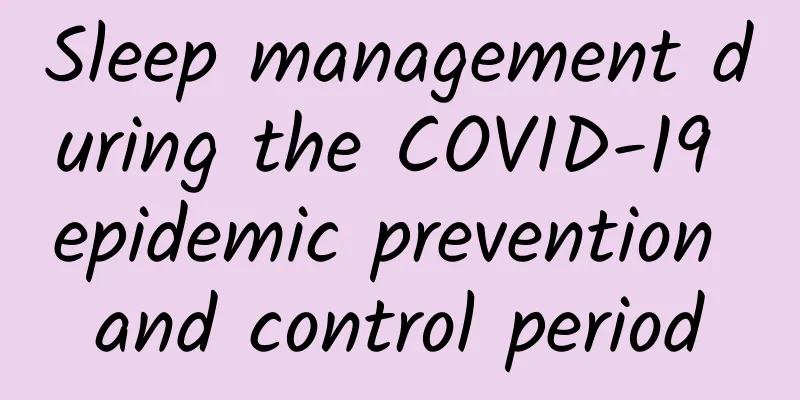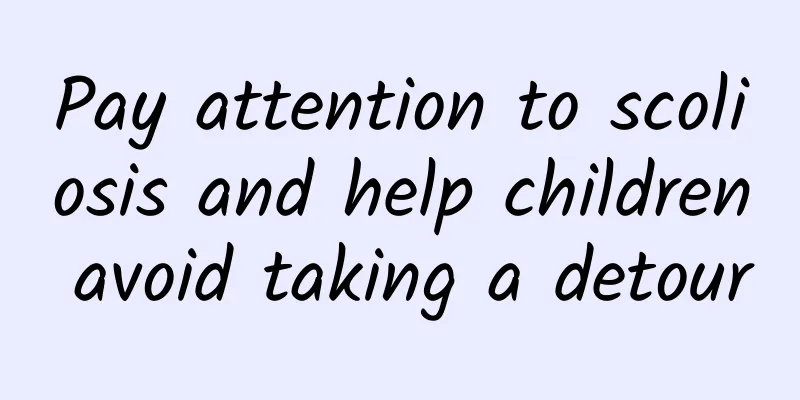Sleep management during the COVID-19 epidemic prevention and control period

|
During the critical period of COVID-19 prevention and control, people may have more or less worries and fears, and their sleep will be affected. In the face of the epidemic, it is a normal reaction to have insomnia symptoms such as difficulty falling asleep, frequent awakenings, early awakenings, shallow sleep, lack of energy during the day, and drowsiness. When the epidemic came, the first thing that appeared was short-term insomnia, and most people can return to normal after the incident, so there is no need to worry too much. However, if some people cannot respond correctly after short-term insomnia occurs and develop some bad concepts and behavioral habits, it is easy to turn into chronic insomnia, and even develop depression, anxiety, etc. Therefore, during the epidemic period, alleviating fear is the fundamental way to maintain good sleep. Everyone should know some knowledge about healthy sleep and measures to prevent and treat insomnia in order to cope with possible insomnia. General measures for healthy sleep The following are specific implementation measures for various methods in cognitive behavioral therapy for insomnia (CBT-I). Many cases of insomnia are related to bad sleep hygiene habits and sleeping environment. Understanding sleep hygiene knowledge, identifying and correcting bad sleep hygiene habits, and creating a good sleeping environment can effectively improve sleep. 1. Maintain regular sleep time and sleeping habits: (1) You only need to sleep until you can restore your energy the next day: Sleep time does not have to follow the standard of "8 hours". Spending too much time in bed will lead to fragmented sleep or shallow sleep. (2) Get up at the same time every day, seven days a week: Getting up at the same time in the morning will lead to going to bed at the same time, which can help establish your "biological clock". No matter how long you sleep, you must get up regularly the next day. (3) Do not try to fall asleep: This may make it more difficult to fall asleep. Instead, get up, leave the bedroom, and do some gentle activities such as reading a book, listening to music, taking a walk, etc. Go to bed only when you feel sleepy. (4) Place the alarm clock under the bed or somewhere far away where you can’t see it: Repeatedly checking the time can cause worry, anger, and frustration, which can make insomnia worse. (5) Avoid daytime naps or dozing off: Staying awake during the day helps you sleep at night. 2. Maintain good behavior habits: (1) Regular exercise: Exercise can help alleviate difficulty falling asleep and deepen sleep. Make an exercise schedule and follow it. You can choose a fixed time during the day or evening. Be careful not to do strenuous exercise within 2 hours before going to bed. (2) Regular hot baths: Taking a hot bath 1.5-2 hours before bedtime can also help increase deep sleep. (3) Avoid strong stimulation within 1.5 hours before going to bed: do not do mental work that is likely to cause excitement or watch books or movies that are likely to cause excitement or horror; avoid arguing with others; (4) Avoid contact with electronic devices before going to bed: Avoid contact with mobile phones, game consoles, tablets, computers, televisions and other electronic devices with luminous screens within 1 hour before going to bed; (5) Don’t take your problems to bed: Worrying can interfere with falling asleep and cause shallow sleep. Solve your problems early in the evening or make plans for the next day. 3. Create a comfortable sleeping environment: (1) Ensure the bedding is comfortable: Comfortable bedding can help you fall asleep. (2) Ensure that the bedroom is not disturbed by light and sound: A comfortable and quiet sleeping environment can help reduce nighttime awakenings. Laying down carpets, drawing curtains, and closing doors can help; wearing eye masks or earplugs can be helpful if necessary. (3) Ensure that the bedroom temperature is appropriate at night: a sleeping environment that is too cold or too hot may affect sleep. 4. Maintain good eating habits: (1) Eat regularly and do not go to bed on an empty stomach: Hunger may affect sleep. Eating a small snack (such as carbohydrates) before going to bed can help you fall asleep, but avoid eating too greasy or difficult to digest food. (2) Avoid excessive drinking at night: To avoid having to get up to go to the bathroom due to frequent urination at night, avoid drinking too much water (including beverages) before going to bed. (3) Reduce the intake of all coffee products: Caffeinated beverages and foods (coffee, tea, cola, chocolate) can cause difficulty falling asleep, nighttime awakenings, and shallow sleep. (4) Avoid drinking alcohol, especially at night: Drinking alcohol may help nervous people fall asleep more easily, but it may cause them to wake up easily or early at night. (5) Avoid smoking: Nicotine is a stimulant and smoking at night can cause insomnia. Relaxation training Relaxation training first relaxes the muscles to achieve physical relaxation, which in turn reduces the activity level of the entire body, achieves mental relaxation, reduces tension, worry and excessive alertness during sleep, promotes falling asleep, reduces nighttime awakenings and improves sleep quality. Commonly used methods include abdominal breathing and progressive muscle relaxation. 1. Abdominal breathing Belly breathing can induce a slower, deeper breathing that is mechanically initiated by the abdomen rather than the chest, similar to the breathing pattern during sleep. Here's how: (1) Feel your breathing: Lie on the bed or sit on the sofa, place your left hand on your chest and your right hand on your abdomen at your navel, breathe naturally, feel the up and down movement of your hands, and compare the range of motion of your hands. (2) Practice and experience abdominal breathing: Breathe slowly through the nostrils, letting the abdomen slowly expand as you inhale, and slowly sink as you exhale, feeling the rise and fall of the abdomen; experience the difference from your previous habitual breathing method by comparing the range of motion of your hands. (3) After practicing for a few minutes, sit up straight and take a break. Keep your hands in the same position and continue to do abdominal breathing. Compare the range of motion of your hands when you inhale and exhale to determine which hand is more obvious. If the range of motion of your left hand is more obvious than that of your right hand, it may mean that you have not yet mastered the technique of abdominal breathing and need to continue practicing. 2. Progressive muscle relaxation Progressive muscle relaxation can reduce the tension in skeletal muscles. The specific methods are as follows: Sit in a comfortable chair, adjust to the most comfortable posture, close your eyes, then take a deep breath and exhale slowly; As you exhale, feel your shoulders sink and your shoulder muscles relax; Continue to inhale deeply, then exhale slowly, feeling your shoulders sink and relax, while feeling the muscle relaxation gradually expand to your upper limbs, fingertips, torso, lower limbs, toes, etc.; Continue to inhale deeply and exhale slowly, feeling the muscles in your shoulders, torso, limbs, neck and head relax at the same time; Continue for several cycles of deep breathing, and feel the relaxation of the muscles throughout the body as you exhale slowly. Eventually, you will feel relaxed and calm, which will help you fall asleep. Progressive muscle relaxation Note that all relaxation training methods require constant practice to achieve good results. At the beginning, you should practice these methods during the day, 3 times a day, and then use them before going to bed to help improve sleep after you become proficient. Cognitive therapy Cognitive therapy can help insomniacs recognize their wrong ideas and attitudes about sleep, and replace wrong ideas with more correct, positive and reasonable ideas, thereby achieving the goal of improving sleep. The following are some common negative cognitions and alternative cognitions about sleep: 1. "I must sleep for 8 hours a day": Everyone's sleep time is different. You only need to sleep until you feel refreshed the next day, not according to the 8-hour standard. 2. "If I didn't get enough sleep the night before, I will make up for it by taking a nap or a power nap the next day": Naps will affect the motivation to sleep the next night and may aggravate insomnia. If you don't make up for it by taking a nap, the motivation to sleep the next night will be greater and you will sleep better. 3. "The more time I spend in bed, the more time I sleep, and the better I feel the next day": For insomniacs, extending the time spent in bed often does not increase the time spent asleep, but rather the time spent awake tossing and turning and having trouble falling asleep. It also increases feelings of irritability and frustration, worsening insomnia. Therefore, it is necessary to shorten the time spent in bed as much as possible to reduce the time spent awake and irritability while in bed. 4. "When I have trouble falling asleep or wake up at night and have trouble falling asleep again, I should stay in bed and try to fall asleep": Sleep is a natural process, and any "effort" is not only futile, but may be counterproductive; when you can't fall asleep, you should get up, leave the bedroom, do some gentle activities (see "Stimulus Control Method" for details), and go to bed when you feel sleepy. 5. "I worry that if I don't sleep for a night or two, I might have a 'meltdown'": Short-term sleep deprivation does not cause a "meltdown," but excessive worrying about it has a greater impact. 6. "If I don't sleep well one night, it will affect my daytime activities the next day": One night of insomnia will have limited impact on the next day's performance, but worrying about it will have a greater impact. 7. “I am worried that insomnia will have a serious impact on my physical health”: Insomnia has limited impact on physical health, but worrying about the consequences of insomnia has a greater impact on the body. 8. "Drinking before going to bed is a good way to solve sleep problems": Drinking can help some people fall asleep earlier, but it will significantly increase the frequency of waking up at night and cause early awakening, which will affect the total sleep time. Stimulus Control If short-term insomnia becomes chronic, stimulus control should be used in conjunction with it. This method limits the time spent in bed while awake and the behavior in the bedroom or on the bed, thereby strengthening the connection between the bed, bedroom, and bedtime and sleep and weakening the connection with insomnia, and also allowing the body to form a normal sleep-wake rhythm. The specific method is as follows: 1. Do not stay in bed or bedroom except at night; 2. Don’t take naps or naps during the day; 3. Go to bed only when you feel sleepy; 4. Except for sleeping, do not read books, use mobile phones, watch TV, listen to the radio, eat, etc. in the bedroom; 5. If you still cannot fall asleep within a short period of time (e.g. 15-20 minutes, do not look at the clock) after going to bed or waking up in the middle of the night, get up, leave the bedroom, and go to another room to do some calming activities, such as reading books and newspapers (paper version, short content, avoid long novels; be careful not to look at mobile phones, tablets, computers, TVs and other devices with luminous screens), listening to music (slow rhythm), taking a walk (avoid strenuous exercise), etc.; 6. Go back to bed only when you feel sleepy again; 7. If you still can’t fall asleep within a short period of time, you must repeat step 5; 8. No matter how long or how well you sleep at night, you must maintain a fixed time to wake up seven days a week. Note: This method needs to be persisted in order to gradually take effect. Avoid giving up if you don’t see results in the short term. Sleep restriction Another method to treat short-term insomnia that turns into chronic insomnia is sleep restriction. When many people have insomnia symptoms, they tend to increase their chances of sleeping and relieve daytime fatigue by staying in bed for a longer time, but this can easily further reduce the quality of sleep. This is because the extended bed time is mostly not converted into real sleep, but it can easily increase the time spent tossing and turning in bed, difficulty falling asleep, and irritability, aggravating insomnia symptoms. Sleep restriction method increases sleep drive by limiting the time spent in bed, thereby reducing non-sleeping time in bed, improving sleep efficiency and sleep quality. The specific method is as follows: 1. Keep a sleep diary for one week, including the time you go to bed, the time you fall asleep, the time you wake up, the time you get up, and your daytime sleep time. 2. Calculate the average time in bed (get up time minus go to bed time) and total sleep time (time asleep all night) each night of that week based on the diary. 3. Use the total sleep time as the bed time for the next week (no less than 4.5 hours), and use the time you usually wake up as the time to get up, so as to determine the time to go to bed (getting up time - bed time). Strictly follow the newly determined bedtime and getting up time, and continue to record a sleep diary. 4. After one week, calculate the average sleep efficiency of the week (sleep time ÷ time in bed × 100%, for example: a person stays in bed for 8 hours a day on average, but only sleeps for 6 hours, then the sleep efficiency is 75%). If it is above 90%, you can go to bed 15-30 minutes earlier next week; if it is between 85%-90%, keep the original bedtime unchanged next week; if it is below 85%, go to bed 15-30 minutes later next week; in principle, the wake-up time remains unchanged. Continue to record a sleep diary. 5. According to the above rules, adjust the bed time (mainly the bedtime) once a week until you achieve satisfactory sleep. Note: This method also requires persistence to gradually take effect. You must keep a record and summarize your sleep diary every week, and strictly adjust your bed time according to your sleep efficiency. Specific coping methods If you have insomnia, you can follow the following methods and steps to improve your sleep. Most people can improve their sleep without taking medication through the following methods, and even just the first 4 steps are enough. 1. Avoid excessive panic, learn to talk (on the phone and WeChat), and seek support from family and friends; 2. Examine whether you have poor sleep hygiene and make corrections; 3. Examine whether you have incorrect cognition about sleep and make corrections; 4. Relaxation training: not only before going to bed, but also any time you feel nervous and uneasy during the day; 5. Stimulus control: that is, "get out of bed if you can't sleep, and go back to bed when you feel sleepy." Usually, after a few nights, you can return to normal sleep; 6. Sleep restriction: limit the time you spend in bed. You can strictly follow the above method. If you can't stick to it, you can just reduce the time you spend in bed to an acceptable level. The most important thing is to set a fixed time for going to bed and getting up. 7. Drug treatment: For short-term insomnia in critical situations, after the above non-drug therapies have failed, sleeping pills (especially non-benzodiazepines) can be used as an auxiliary. This is the simplest and most effective method, and short-term and intermittent use will not cause addiction. Relevant measures for different groups of people In addition to the general measures mentioned above for insomnia, in the face of the epidemic, different groups of people can also use different methods to reduce psychological pressure and indirectly improve sleep. Patients, quarantined persons and their families 1. Patients Understand the basic knowledge of the disease and maintain a correct understanding of the disease; build confidence in overcoming the disease and maintain a positive and optimistic attitude; adapt to the hospitalization environment as soon as possible and actively cooperate with the treatment of medical staff; when conditions permit, communicate and exchange with relatives and friends through telephone, Internet, etc. to obtain support; when conditions permit, you can also relax by watching TV, listening to the radio, surfing the Internet, listening to music, etc.; try to maintain a regular sleep-wake rhythm; when insomnia symptoms occur, you need to cooperate with the aforementioned sleep hygiene education, relaxation training and cognitive therapy for self-regulation, and cooperate with drug treatment when necessary. 2. People in quarantine Adapt to the environment as quickly as possible; make a schedule and follow it, maintain a regular sleep rhythm, and set time for study, work, exercise, entertainment and meals; talk to friends, family or people with similar experiences through telephone and Internet to gain support and boost confidence; you can also vent by writing down your emotions; learn about the disease through formal and official channels to avoid unnecessary panic; when insomnia symptoms occur, you need to cooperate with the aforementioned sleep hygiene education, relaxation training and cognitive therapy for self-regulation, and cooperate with drug treatment when necessary. 3. Patient’s family Actively cooperate with the hospital's treatment of patients and the isolation, epidemiological investigation and other work that may be taken by relevant departments; accurately understand the patient's current condition and provide necessary support and encouragement to the patient during visits; understand disease-related knowledge, do not believe in rumors or spread rumors, and build confidence in defeating the disease; when insomnia symptoms occur, cooperate with the aforementioned sleep hygiene education, relaxation training and cognitive therapy for self-regulation, and cooperate with drug treatment when necessary. 4. Family members of quarantined persons On the one hand, as a bridge between the quarantined and the outside world, they need to frequently support and encourage the quarantined through telephone, Internet and other communication means, listen to their feelings, and actively provide them with material needs such as clothing and food, and spiritual needs such as books, music, and movies; on the other hand, they need to keep communicating with other relatives and friends to vent their stress and negative emotions. When insomnia symptoms occur, they need to cooperate with the aforementioned sleep hygiene education, relaxation training and cognitive therapy for self-regulation, and cooperate with drug treatment when necessary. 5. Medical staff For the majority of medical staff, especially those on the front line who directly diagnose and treat patients, the intensity of work and psychological burden will suddenly increase when the epidemic comes. To this end, we must build confidence and firmly believe that "we will definitely be able to defeat the disease"; pay attention to the combination of work and rest, take a timely rest after work, and maintain moderate exercise; reasonably vent negative emotions, share and listen to each other's feelings with colleagues, and communicate and exchange with relatives and friends in time after work; when insomnia symptoms occur, they need to cooperate with the aforementioned sleep hygiene education, relaxation training and cognitive therapy for self-regulation, and cooperate with drug treatment when necessary. 6. Volkswagen Get accurate and authoritative information about the disease and related prevention and control knowledge through formal channels; do not believe in rumors or spread them to avoid causing unnecessary panic; even during vacation, maintain a regular sleep rhythm, and set your own time for study, work, exercise, entertainment and meals; control the time you spend checking epidemic-related information every day, especially within 1 hour before going to bed, avoid checking too much epidemic-related information; do not pay too much attention to negative information, but pay attention to positive information at the same time (such as most patients have mild symptoms and can recover on their own; more and more patients have been cured and discharged, etc.); when insomnia symptoms occur, cooperate with the aforementioned sleep hygiene education, relaxation training and cognitive therapy for self-regulation, and use stimulus control and sleep restriction when necessary to prevent insomnia from becoming chronic, and cooperate with drug treatment as appropriate. |
<<: Acute hepatitis among children is spreading. What is its relationship with COVID-19?
>>: Diagnosis and treatment of vascular dementia
Recommend
Menstrual cycle shortened to 25 days
Many women think that the longer the interval bet...
Can I drink red wine during my period?
Some female friends like to drink alcohol normall...
Can I clean my nipple discharge during pregnancy?
Pregnancy is a whole process that most women must...
What are the "little blisters" on your fingers in summer? This article teaches you how to deal with them!
In the hot summer, have you noticed some transpar...
How do spots on the face come from?
Some people worry about work, some worry about mo...
What should I do if my baby is particularly prone to diaper rash? Why does my baby have diaper rash?
Regarding the phenomenon that babies are particul...
Five major symptoms of hemorrhoids in women, be sure to read!
People always say that "nine out of ten peop...
What is the difference between maocai and hotpot? What ingredients are in maocai?
Maocai is a dish made with meat, soy products, ve...
Can kidney deficiency cause infertility in women?
Maintaining good health is a very important thing...
Causes of left abdominal pain in girls
For girls, if they experience pain in the lower a...
The effectiveness of painkillers is really different when you take them while standing, lying down, or sitting!
When we experience physical discomfort or pain, e...
The most embarrassing question a woman will encounter in her life
When faced with embarrassing gynecological proble...
Leucorrhea is sticky and white like paste
A very common substance in female secretions is v...
What does it mean when lochia turns brown?
After giving birth to a baby, the mother's bo...









